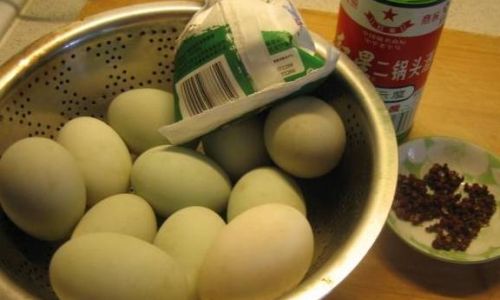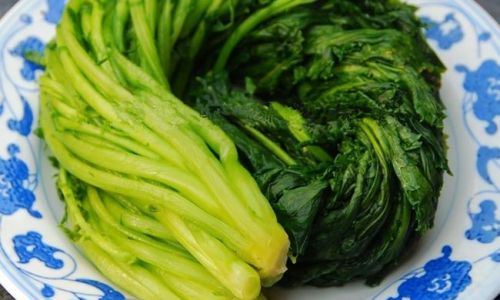Table of content
Boiling eggs might seem like a straightforward task, but achieving the perfect saltwater boiled egg can elevate this simple dish to a culinary delight. Whether you’re preparing for breakfast, brunch, or a quick snack, knowing how to make saltwater boiled eggs can ensure that your eggs are tender, flavorful, and easy to peel. In this guide, we’ll explore the intricacies of making saltwater boiled eggs, from selecting the right eggs to mastering the peeling technique. By the end, you’ll be able to create a dish that balances the delicate texture of a perfectly cooked egg with the subtle enhancement of saltwater.
Understanding the Science Behind Saltwater Boiled Eggs
Before diving into the recipe, it’s essential to understand why adding salt to the boiling water can make a difference. Saltwater raises the boiling point of water slightly, which means the eggs cook at a higher temperature. This can result in a more even cooking process, potentially leading to firmer whites and yolks that are neither too runny nor too dry. Moreover, salt enhances the flavor of the eggs, making them more palatable without the need for additional seasoning.
Ingredients and Equipment
To make saltwater boiled eggs, you’ll need:

- Fresh eggs (preferably large or extra-large)
- Salt (kosher or sea salt is recommended for better flavor dispersion)
- A large pot with a lid
- A slotted spoon or ladle
- Ice cubes (optional, for stopping the cooking process)
- A bowl of cold water (optional, for shocking the eggs)
Step-by-Step Guide
Selecting the Right Eggs
Start with fresh eggs. Freshness is crucial because older eggs have more air pockets in the whites, making them more likely to crack during boiling. You can check the freshness of eggs by placing them in a bowl of water. Fresh eggs will sink to the bottom and lie flat, while older eggs will float or stand on one end.
Preparing the Saltwater
Fill your large pot with enough water to fully submerge the eggs and then some. The exact amount of water will depend on the size of your pot and the number of eggs you’re boiling. For every liter of water, add about 2 tablespoons of salt. Stir the water gently to ensure the salt is evenly distributed.
Bringing the Water to a Boil
Place the pot on the stove and set the heat to high. Bring the saltwater to a rolling boil. It’s important to wait until the water is actively bubbling before adding the eggs. This ensures that the eggs are immediately surrounded by boiling water, promoting even cooking.
Adding the Eggs
Carefully place the eggs into the boiling water using a slotted spoon or ladle. This helps prevent the eggs from cracking against the side of the pot. If you’re boiling multiple eggs, try to add them gently one by one. Once all the eggs are in the pot, reduce the heat to a gentle simmer. The simmering water will continue to cook the eggs without the risk of overcooking due to excessive heat.
Timing the Cooking Process
The cooking time for saltwater boiled eggs depends on your preferred doneness:

- Soft-Boiled Eggs: Cook for about 4-5 minutes. The yolk will be runny, and the white will be set but still slightly soft.
- Medium-Boiled Eggs: Cook for 6-7 minutes. The yolk will be creamy with a slight firmness, and the white will be fully set.
- Hard-Boiled Eggs: Cook for 9-12 minutes. The yolk will be fully set and firm, and the white will be completely cooked.
Stopping the Cooking Process
Once the eggs have reached your desired doneness, immediately remove them from the heat. To prevent overcooking, you can use two methods:
- Ice Bath Method: Transfer the eggs to a bowl of ice water using a slotted spoon. This rapidly cools the eggs, stopping the cooking process.
- Cold Water Rinse: Run the eggs under cold water until they’re cool enough to handle. This method is less precise but effective in a pinch.
Peeling the Eggs
Peeling saltwater boiled eggs can sometimes be tricky, but there are a few techniques to make it easier:
- Tap and Roll: Gently tap the egg all over with the back of a spoon or your hand to create small cracks in the shell. Roll the egg between your palms to loosen the shell further.
- Peel Under Water: Peel the egg under running cold water. The water helps separate the shell from the egg white, making peeling smoother.
- Start at the Large End: Peel from the larger end of the egg, where there’s a small air pocket. This often provides a natural starting point for easier peeling.
Tips for Perfect Saltwater Boiled Eggs
- Use Fresh Eggs: As mentioned, freshness is key to preventing cracks and achieving a better texture.
- Room Temperature Eggs: If possible, let your eggs sit at room temperature for about 30 minutes before boiling. This can make them less likely to crack during cooking.
- Avoid Overcrowding: Don’t boil too many eggs at once. Overcrowding can reduce the water temperature and make it harder to maintain a consistent simmer.
- Store in Cold Water: Once peeled, store your saltwater boiled eggs in a bowl of cold water in the refrigerator. This helps keep them fresh and prevents the yolks from drying out.
Serving and Enjoying Your Saltwater Boiled Eggs
Saltwater boiled eggs are incredibly versatile and can be enjoyed in various ways:
- On Their Own: A simple, healthy snack or breakfast option.
- In Salads: Chopped and added to green salads for added protein and flavor.
- Deviled Eggs: Perfect for making classic deviled eggs with a creamy filling.
- Egg Salad: Used in egg salad sandwiches or wraps.
- Toppings: Added to avocado toast, grain bowls, or other dishes for a protein boost.
In conclusion, making saltwater boiled eggs is a simple yet rewarding culinary endeavor. By following these steps and tips, you can achieve perfectly cooked eggs that are flavorful, tender, and easy to peel. Whether you’re a seasoned chef or a home cook looking to elevate your breakfast routine, saltwater boiled eggs offer a delicious and nutritious option that’s sure to please. Happy boiling!






0 comments